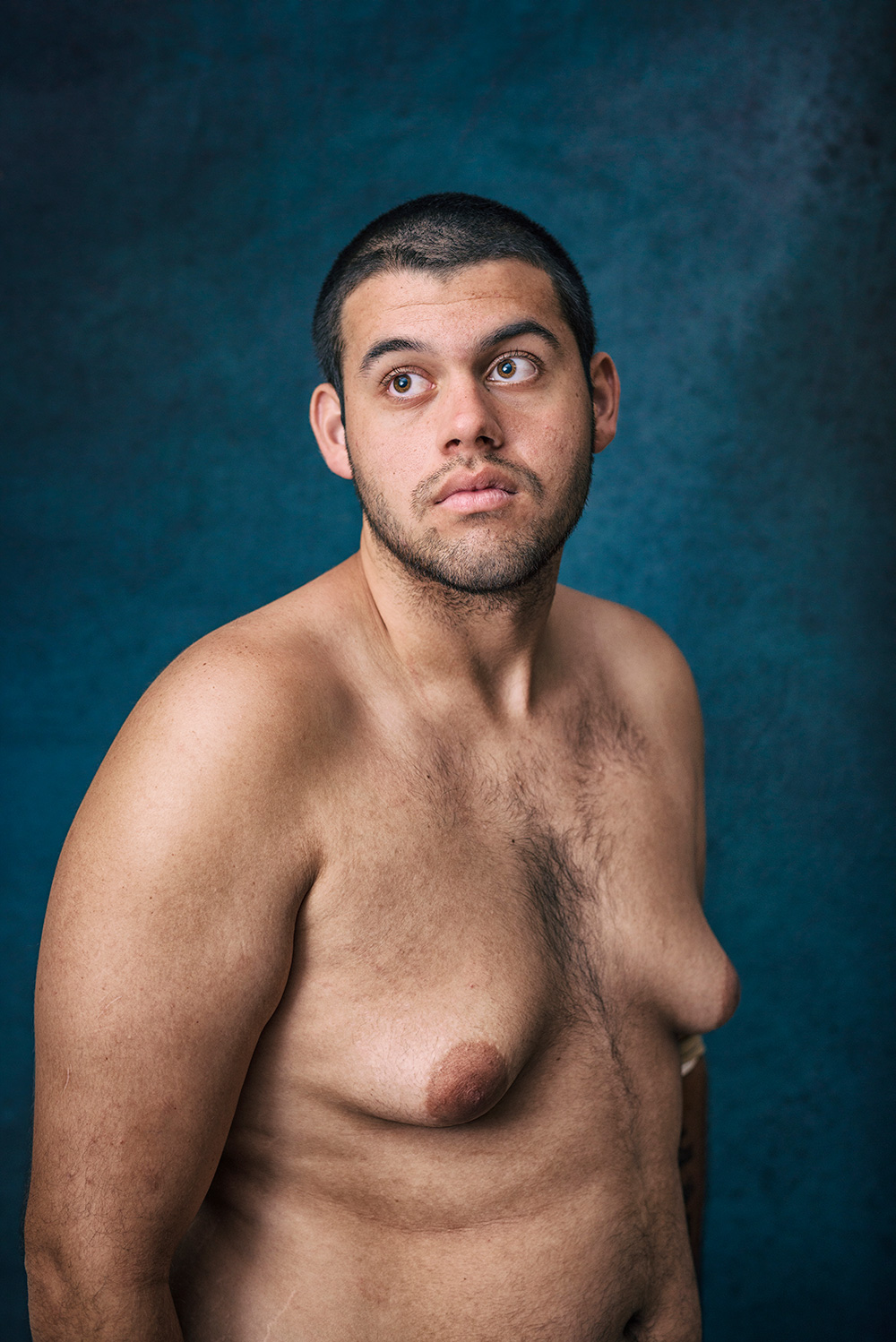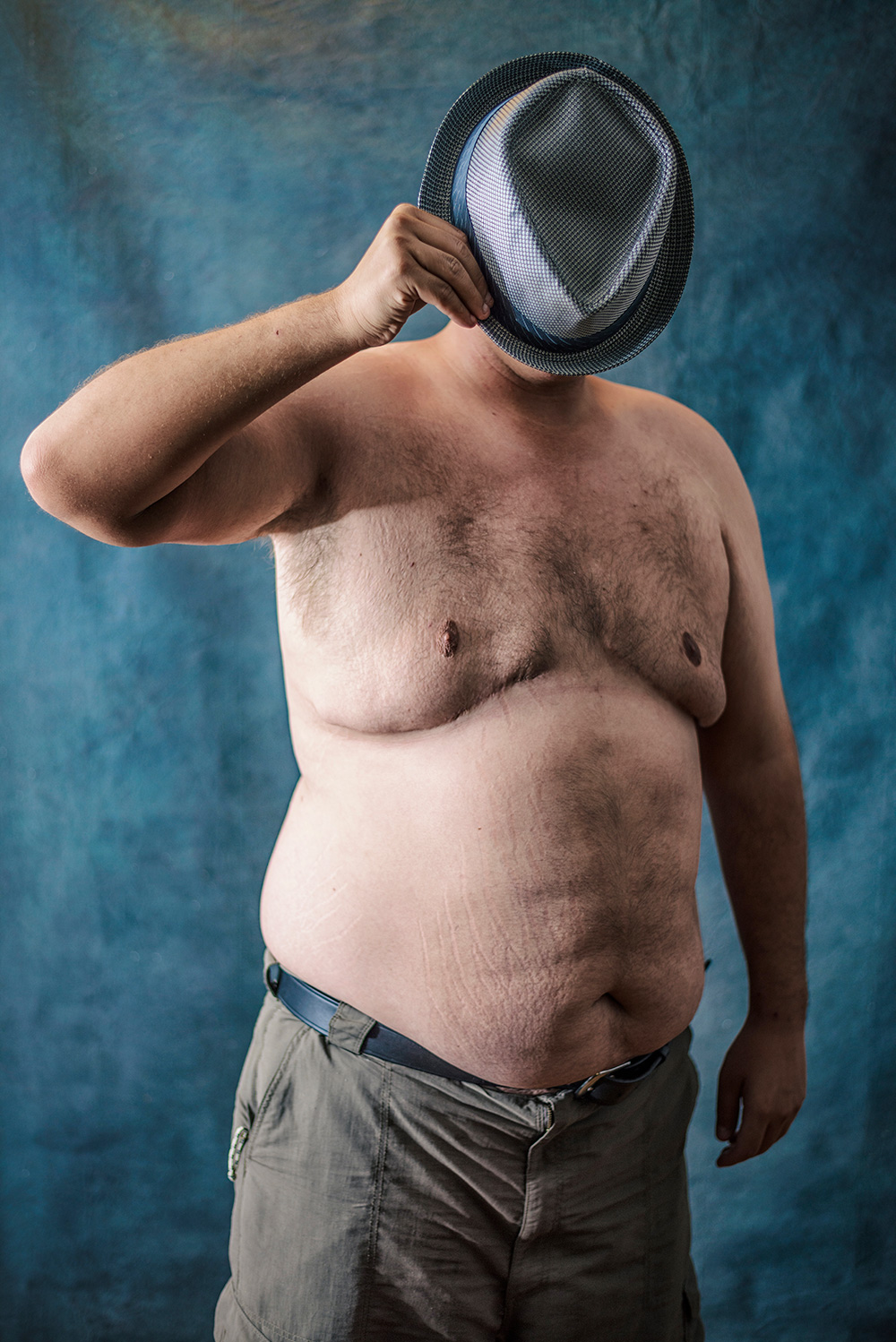Why a Growing Number of Boys Have to Decide Whether or Not to have Breast Removal Surgery
Besides causing boys to develop female breasts, the drug Risperdal can also cause massive weight gain -- up to 100 pounds in a year. When boys stop taking Risperdal, they can lose the weight, but the breasts remain, which often become deformed. The only way to remove the breasts is through a painful and costly surgery. While nearly every young man who suffers from gynecomastia caused by Risperdal dreams of a life without breasts, there are some complicating factors that keep many of the men from going under the knife.
The Cost of Surgery

The surgery can cost thousands and thousands of dollars, depending on a number of factors. Most insurance policies consider the procedure cosmetic and refuse to cover it, forcing families to pay out of their own pocket. Some families can afford the surgery, most cannot. Because Johnson & Johnson targeted clinics that served patients on Medicaid, many boys who took Risperdal come from lower income families.
Eddie from Oklahoma, who contributed to the “Risperdal Boys” photo project, was lucky that Oklahoma's SoonerCare covered his surgery. He had the operation as a teen and was able to recover some of his high school years without the teasing and bullying associated with gynecomastia.
Risperdal Boy Michael from Cleveland had to fight for months to get his insurance to cover the surgery, and the result was a “no-frills” surgery that left Michael with a disappointing result and simply added to his body image issues.
One of the young men we spoke with, who decided not to participate in the “Risperdal Boys” project, said his mother paid for the surgery with multiple credit cards. To save money, they opted to forgo general anesthesia, relying only on local. He was awake for the operation, and could sense all the pulling, cutting, and prodding.
Risperdal Boy Pedro from Tampa cannot rely on insurance and has no credit cards. He’s working and hopes to save enough to get the surgery one day. After paying living expenses and tuition, the surgery seems like a distant dream.
The Painful Recovery
Removing the breasts is not a simple surgery. It often involves significant incisions below the breasts to remove the tissue, and it frequently requires the nipples to be cut out and repositioned. Recovery is often long and painful.
One patient who opted not to participate in the project said he spent about two weeks with tubes in his armpits to accommodate drainage, and it was months before he regained feeling in his chest.
Laraina, mother of Risperdal Boy Isaiah from Flint says she's considered getting the surgery for her son, but she's not sure it would be worth the pain. Like many of the children who were prescribed Risperdal, Isaiah is autistic. Laraina and many other parents agree that the side effect of gynecomastia far outweighs what benefit, if any, they experienced from the drug.
 Risperdal Boy Michael from Cleveland said the surgery and recovery was so difficult and painful, he's not sure he would opt to do it again -- especially since he wasn't satisfied with the result. Not all doctors are equally skilled at the cosmetic details of the surgery, leaving patients with scarred and deformed chests.
Risperdal Boy Michael from Cleveland said the surgery and recovery was so difficult and painful, he's not sure he would opt to do it again -- especially since he wasn't satisfied with the result. Not all doctors are equally skilled at the cosmetic details of the surgery, leaving patients with scarred and deformed chests.
Because weight gain is a common side effect of taking Risperdal, many of the young men who hope to get surgery find their weight an obstacle to getting the surgery. Doctors frequently refuse to perform the surgery until the patient reaches a weight that they feel they are comfortable with. If the surgery is done first, as a patient loses weight, the chest can drop and become deformed, which is much more difficult to repair.
Complicated Self-Identity Issues
The Risperdal Boys were forced to deal with developing female breasts during their adolescent years. Being a teenager is hard enough on its own -- throw gynecomastia into the mix, and it can become a nightmare. Every Risperdal Boy dealt with the experience in his own way. Some retreated to their rooms. Some found an escape in video games. Virtually all experienced bullying.
Whatever defense mechanism a boy developed to deal with the ridicule, it had a big impact in shaping his personality. Some learned to stand up to bullies. Some have worked hard to try and accept their bodies. For others, gynecomastia has brought up gender identity issues. For good or for bad -- and mostly for bad -- gynecomastia has become central to the Risperdal Boy’s self identity.
Their breasts have become a part of who they are, and it can be scary giving up something that has become such a big part of your identity -- even if it's a part that you hate.
